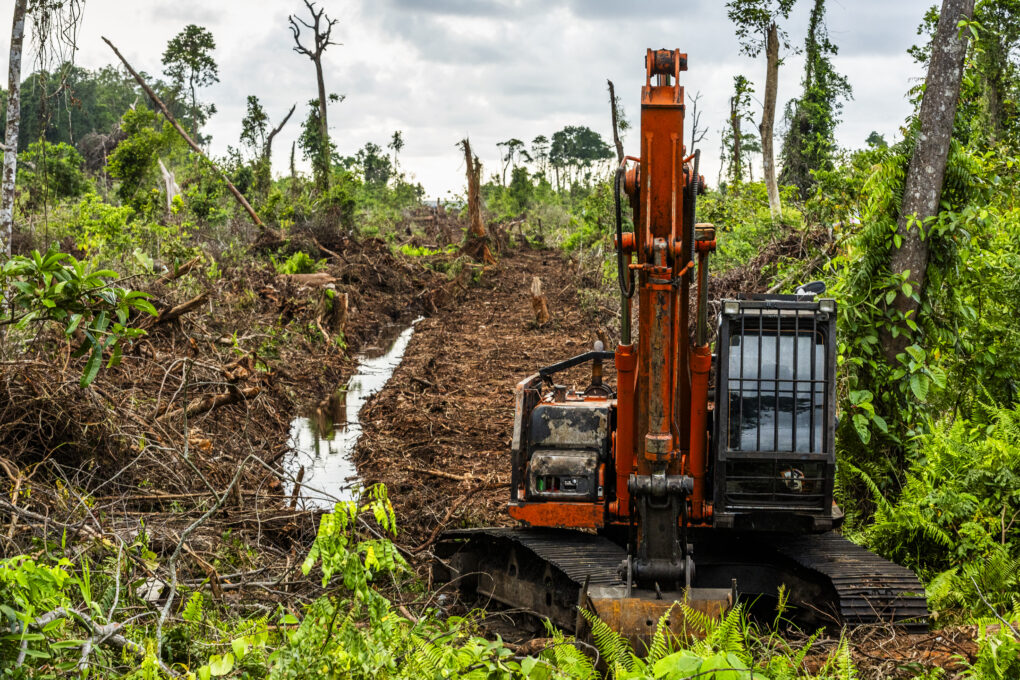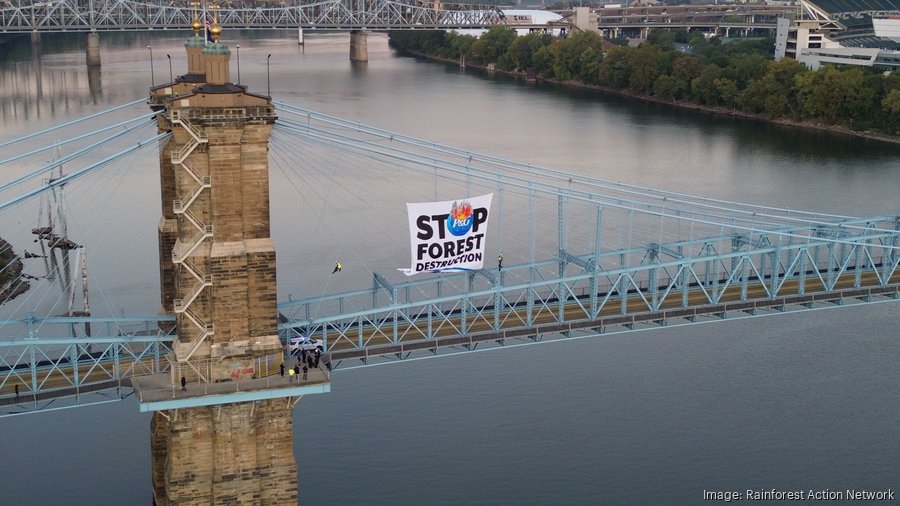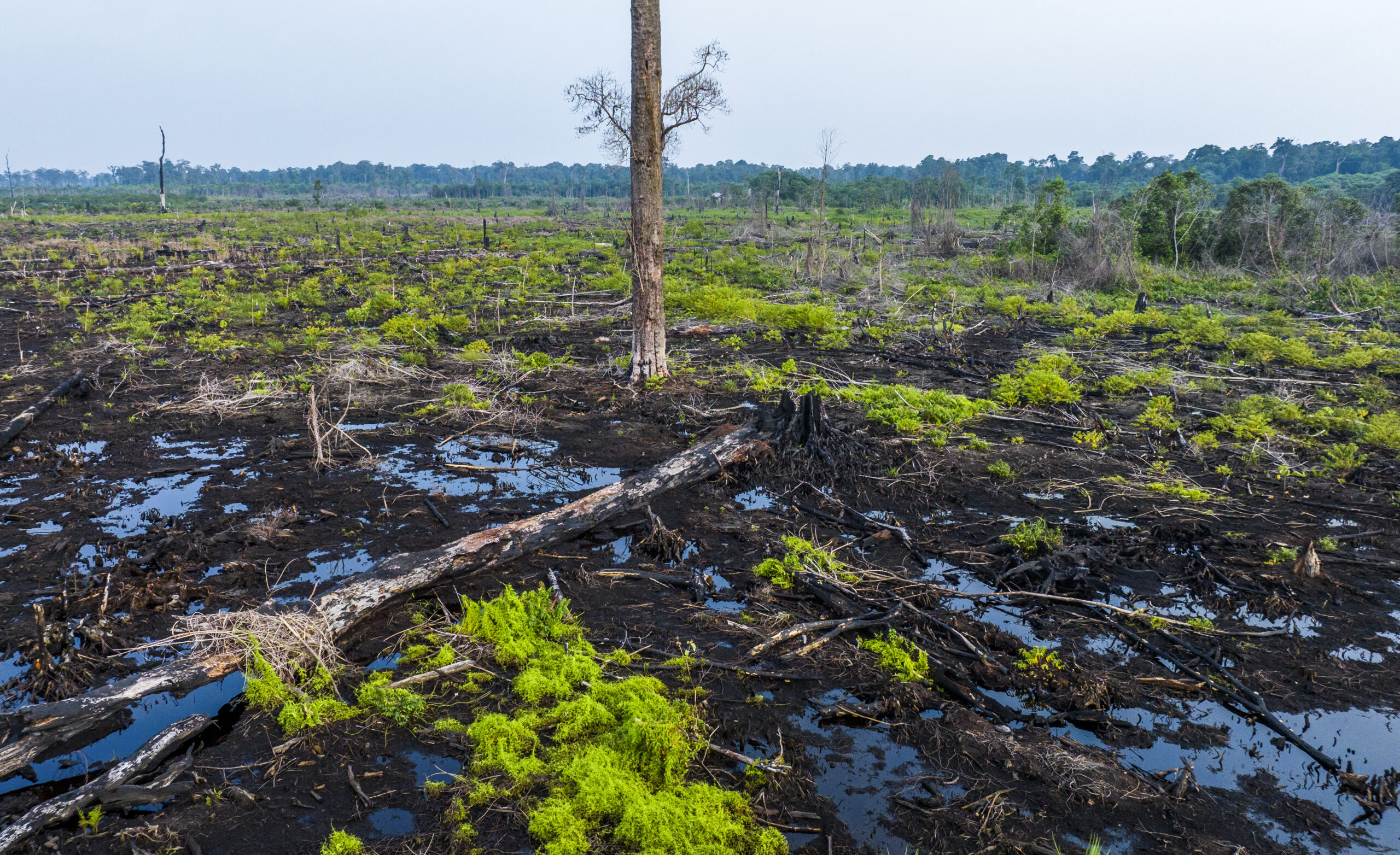Climate change and mass extinction are accelerating globally, posing an existential threat to organized human society. Forests have a critical role to play in heading off these crises — they contain up to 80% of the planet’s remaining terrestrial biodiversity and boast major carbon-capture potential. Forests also have numerous beneficial biophysical effects, including cloud formation and rainfall over large geographic areas.
Despite these facts, deforestation and violence against forest defenders continue to rise precipitously worldwide. Big corporations play a major role in this trend — agricultural expansion by itself accounts for up to 90% of global deforestation, and it shows little sign of slowing down.
Our annual Keep Forests Standing Scorecard is an effort to hold 10 of the world’s biggest consumer goods brands accountable for their role in the deforestation crisis. Our 2023 scorecard shows that the brands — Colgate-Palmolive, Ferrero, Kao, Mars, Mondelēz, Nestlé, Nissin Foods, PepsiCo, Procter & Gamble, and Unilever — have largely stalled on their progress. Procter & Gamble is an outlier this year in that its performance actually worsened despite intense public pressure on the company to improve.

The Leaders
Of all 10 Scorecard brands, only Unilever managed to reach a C on our grading scale, the same score it has had in prior years. In the last year, it built on the strong foundation it set in 2020 with its cross-commodity “No Deforestation, No Peat, No Exploitation” (NDPE) policy by publishing a precedent-setting Human Rights Defender policy and action plan. It also continued investments in landscape programs in the Leuser Ecosystem and reported on major grievances. So far, however, it has failed to put Royal Golden Eagle — an extremely unethical supplier — on its no-buy list.
The Middle of the Pack
Nestlé has shown some signs of progress with a recent Human Rights Defender commitment. Nevertheless, Nestlé continues to engage in large-scale greenwashing with unverified claims of 95.6% deforestation-free supply chains.
Similarly, the world’s largest candy maker, Mars Inc., claims its palm oil supply chains are 100% deforestation free. Like Nestlé, Mars has not provided independent verification of its claims. In fact, RAN has hard evidence that Nestlé and Mars suppliers continue to drive the destruction of parts of the Leuser Ecosystem in 2023, a rainforest preserve in Sumatra known as the “orangutan capital of the world.”
Mars has made one valuable contribution in the last year, however, in the form of its guidance for suppliers on respecting land rights. Despite a suite of new and updated policies, action plans and disclosures on salient human rights issues, there is not a single brand that can prove that their suppliers are respecting the rights of Indigenous peoples to give or withhold their Free, Prior and Informed Consent (FPIC) to existing and new developments on their territories.
Kao and Colgate-Palmolive made further improvements to their cross-commodity NDPE policies to require suppliers to adhere to the policy across their entire operations in all forest-risk commodity supply chains.
Despite some promising signs, middle of the pack brands — Nestlé, PepsiCo and Kao — have failed to improve their scores enough to advance to a higher grade this year. Colgate-Palmolive and Mars have moved from a D grade to a D-.
The Laggards
Nissin Foods, Ferrero, Mondelēz and Procter & Gamble round out the very bottom of the 10 brands that we assessed, but P&G is the only laggard to have gotten worse in the past year. This comes despite incredible public pressure: P&G has ignored calls by investors, descendants of the company’s founders, the Cincinnati community (where it is a major employer), and frontline communities to strengthen its NDPE and human rights policies. In fact, P&G took the unprecedented step of publishing weaker forest protections in 2023. It reduced protections for forests in its wood-pulp supply chains, which is a major threat to Boreal forests given P&G’s large household paper business with brands like Charmin and Bounty. It also walked back protections for Intact Forest Landscapes and Human Rights Defenders, and relaxed its sourcing policies from corporate groups.

Consumer Brands Have Stalled Out
Tragically, this year’s evaluation has found that none of the 10 major brands took adequate steps to address their contribution to deforestation and human rights violations in forest-risk commodity supply chains.
The broad reluctance on the part of the world’s biggest brands that are driving deforestation to change does not bode well for the future. As forests continue to fall and frontline communities defending their forests from exploitation continue to suffer, the Keep Forests Standing campaign and consumers across the globe must continue to demand more than just paper promises.
Download the full KFS Scorecard report at ran.org/kfs-scorecard/
